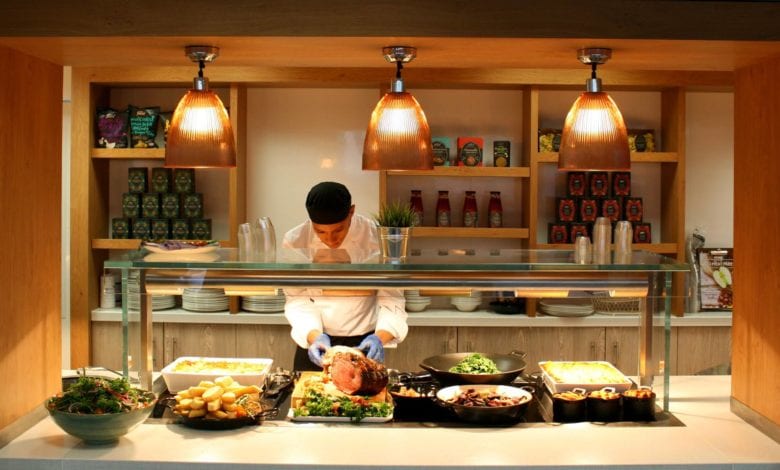New immigration rules will make it “next to impossible” for hospitality to recruit overseas workers
Last week the Home Secretary announced upcoming changes in immigration policies which will raise the skilled worker visa minimum salary threshold from the current £26,200 to £38,700. Jane Pendlebury, CEO of HOSPA, told us what this means for the hospitality sector

The most important change announced by the Government concerns the skilled worker visa because from spring 2024, the earning threshold for overseas workers will increase by nearly 50% from its current position of £26,200 to £38,700. How will this change affect the hospitality industry?
It’s just not good for hospitality. Our industry hasn’t been singled out in the same way that the care sector has been singled out when it comes to the new immigration policies, which is kind of frustrating and I think we often feel overlooked.
My other strong feeling is that the government is giving higher priority to immigration rather than looking at other issues closer to home, to our economy. They have lost sight of the benefits of overseas workers and people coming into our country, and they can only see the negatives.
Do many overseas workers in hospitality currently count on the skilled worker visa?
I think last year’s figures show that 8500 workers came in on the skilled worker visa, which is already a small proportion of the total workforce. But among those 8500 who had got the visa, only 5% would go through now with the new threshold. So 95% of those people we won’t be able to bring in anymore because they will no longer be eligible.
So the threshold will worsen the current staff shortages the industry is faced with?
Absolutely, it’s just contributing to what’s already a massive issue for the industry. I believe that there’s 140,000 vacancies in the sector at the moment and that’s remained pretty much unchanged for the last six months. So we have big issues in hospitality to recruit into the right jobs. And we need those overseas workers to make it a viable industry.
Why do you think the Government has decided to raise the threshold?
Because immigration has been given higher priority than the economy itself. The new rules are making it next to impossible for hospitality to recruit from overseas, compared to the healthcare sector which has a specific route to recruit workers from abroad. It’s brilliant that they allow care workers to come to the UK because they are faced with staff shortages too but I suspect the government allows it because the NHS is a government-run business. The hospitality industry itself is not a single business. It’s full of small and medium sized enterprises so we’re not one body in the same way that the NHS is. But hospitality is still massive and accounts to a good part of the economy.
The second important change that the government has announced is the Shortage Occupation List being replaced by a new Immigration Salary List, which will be reviewed and the number of jobs on the list will be reduced. The government has refused many times so far to incorporate hospitality roles in the Shortage Occupation List, despite calls from the industry asking to do so. Given the government’s refusal to include hospitality roles in the Shortage Occupation List, how might this affect the industry’s ability to address staffing shortages?
75% of our workforce is filled from within the UK. So it’s not like we’re not recruiting locally and from the home market, but that still leaves 25% that needs to be filled by overseas workers. And if those jobs can’t be filled by overseas workers, that’s going to affect the businesses. If a hotel can’t get their rooms cleaned and ready, then they might have to close off bedrooms or even whole floors. And obviously many businesses decide to reduce their hours trading, which inevitably is going to have a negative effect on income and profitability. Ultimately, this decision is going to damage the industry significantly.
Why do you think the government has consistently refused to include hospitality jobs in the Shortage Occupation List?
Again, I think it’s because we are made up of so many small and medium sized enterprises and not as a single employer. Although we create great revenues for the UK, because we are still one of the largest industries in the country with over three million people working in hospitality and another three million working indirectly with it. Despite this, the government doesn’t seem to be really recognising hospitality as a sector of value to the UK economy.
Considering that these new immigration rules will be in place from spring 2024, how does this change the prospects for the hospitality industry in the coming year?
I think hospitality is a resilient industry. We do survive with all the challenges thrown at us, as we have seen during Covid, and staffing is just one of many. It’s an important issue, but there’s all manner of potential obstacles in the path of a successful business, including food inflation and supply chain issues. We weren’t taken by surprise with these new policies but there’s only so much we can take.
If you could suggest an initiative or policy for the government to address, what would it be?
It would be freedom of movement across Europe, which is what we had prior to Brexit. Or the ability for us as an industry to bring people across from Europe to work in our businesses. I think it’s a great shame that we’re not welcoming those people into the UK especially when they’re willing to help us where we’ve got an issue. So if I could suggest something, it would be the freedom of movement into the UK that we used to have.






